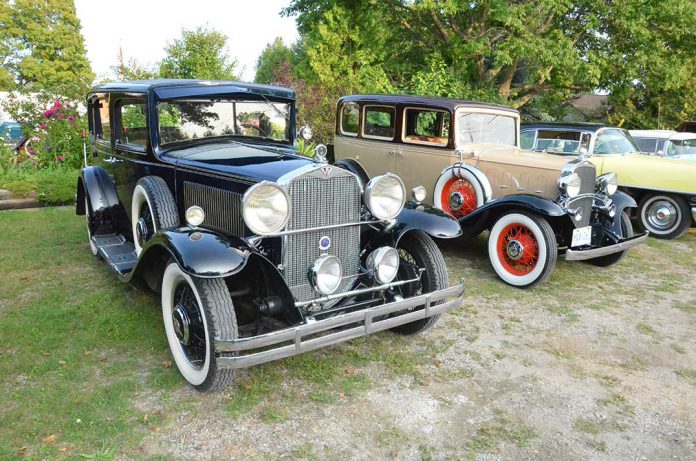Enbridge shareholders are regular guys and gals with small investments
To the Expositor:
The August 9 edition of this paper featured a letter by Jim Nies (‘Disappointment in Canada’s support of the Line 5 pipeline,’ Page 4) regarding the Enbridge Line 5 pipeline and Ontario’s support for the continued use of this facility.
I would like to comment on two assertions that Mr. Nies makes. The first is this statement; “And of course, escalating climate change calamities are making the need to move away from fossil fuels ever more obvious.” Really?! And where is the evidence to support such a claim? The UN Intergovernmental Panel on Climate Change (IPCC) has been researching the issue for decades and has issued a study regarding extreme weather events. Here is some of what the IPCC has to say about extreme weather events:
“There continues to be a lack of evidence and thus low confidence regarding the sign of trend in the magnitude and/or frequency of floods on a global scale.”
“There is low confidence in observed trends in small spatial – scale phenomena such as tornadoes and hail.”
“There is low confidence in detection and attribution of changes in drought over global land areas since the mid 20th century.”
In addition to the above statements by the IPCC, Professor Roger Pielke Jr (University of Colorado Boulder) pointed out in a recent presentation in Sydney Australia that global disasters due to extreme events since 1990 are 50 percent what they were for the previous 27 years, as a proportion of GDP. Closer to home, the US has seen a decrease of ~ 20 percent in both hurricane intensity and frequency at landfall since 1900.
The statements by the IPCC and Pielke do not forecast what the future will bring but they do present hard evidence regarding the climate record. Anyone claiming that “climate calamities” are escalating are either misinformed or they are making a case for a political position, evidence be damned.
The second issue is the condition of the Line 5 facility. Mr. Nies calls Line 5 decrepit, a disaster waiting to happen, cracked and dented, corroded, unsupported, flexing continuously, among other things. It is interesting that the US Department of Transportation’s Pipeline and Hazardous Materials Safety Administration (PHMSA) recently completed an independent review of Enbridge’s inspection data on Line 5 which is posted on its website. PHMSA has concluded that the Line 5 Straights crossing is safe and fit for purpose and provides validation from a third party expert that the pipe lines (there are two of them) are in good condition. Line 5 is the most inspected segment of pipe in Enbridge’s crude oil network and the examinations include:
Autonomous Underwater Vehicle inspections using side-scan sonar – done every two years.
Visual inspections using vehicles and divers – done every two years.
Internal inspections using “smart pigs” which are sent through the line and capable of measuring wall thickness, corrosion, and like parameters – this has been done three times in the last five years.
This assessment stands in stark contrast to the picture that Mr. Nies’ attempts to paint. The information that PHMSA has posted is reassuring and one can be reasonably certain that the process used to monitor pipe lines is sound and robust from an engineering point of view. It seems obvious that the information Mr. Nies has presented regarding the Line 5 condition has as much credibility as the comments regarding extreme weather events.
A last point about profits. Part of the headline states that the profits of a small group of people outweigh the concerns of thousands. Small group? I am assuming that Mr. Nies is referring to the shareholders of Enbridge. These are the people that benefit from any profits that Enbridge would make. Like any other corporation of this size, this is no small group and it is comprised of people who represent all levels of the income spectrum. If you are a retired teacher, your pension fund could be supported in part by an investment in the fossil fuel industry. If you have an investment in a primary industry fund, Enbridge could be providing a dividend to the fund. In other words, there are very few Scrooge McDucks out there sitting on a mountain of gold coins. Most of the people who benefit are regular guys and gals who have a modest interest via an investment instrument of some sort. In more general terms, the average person working with the aim of improving their lot in lot in life are relying on inexpensive and reliable energy to pursue their livelihood. They far outnumber the mobs that are mobilized by the Chicken Littles of the climate debate, and they tend to support pipeline projects because they know fossil fuels are necessary as they are the engine powering our economy.
Shane Desjardins
Mindemoya




